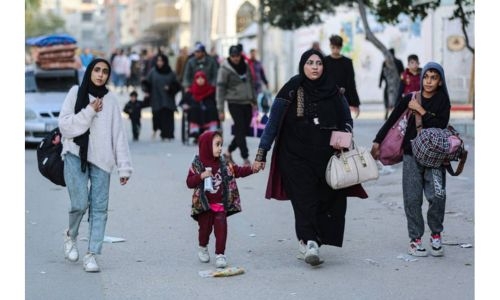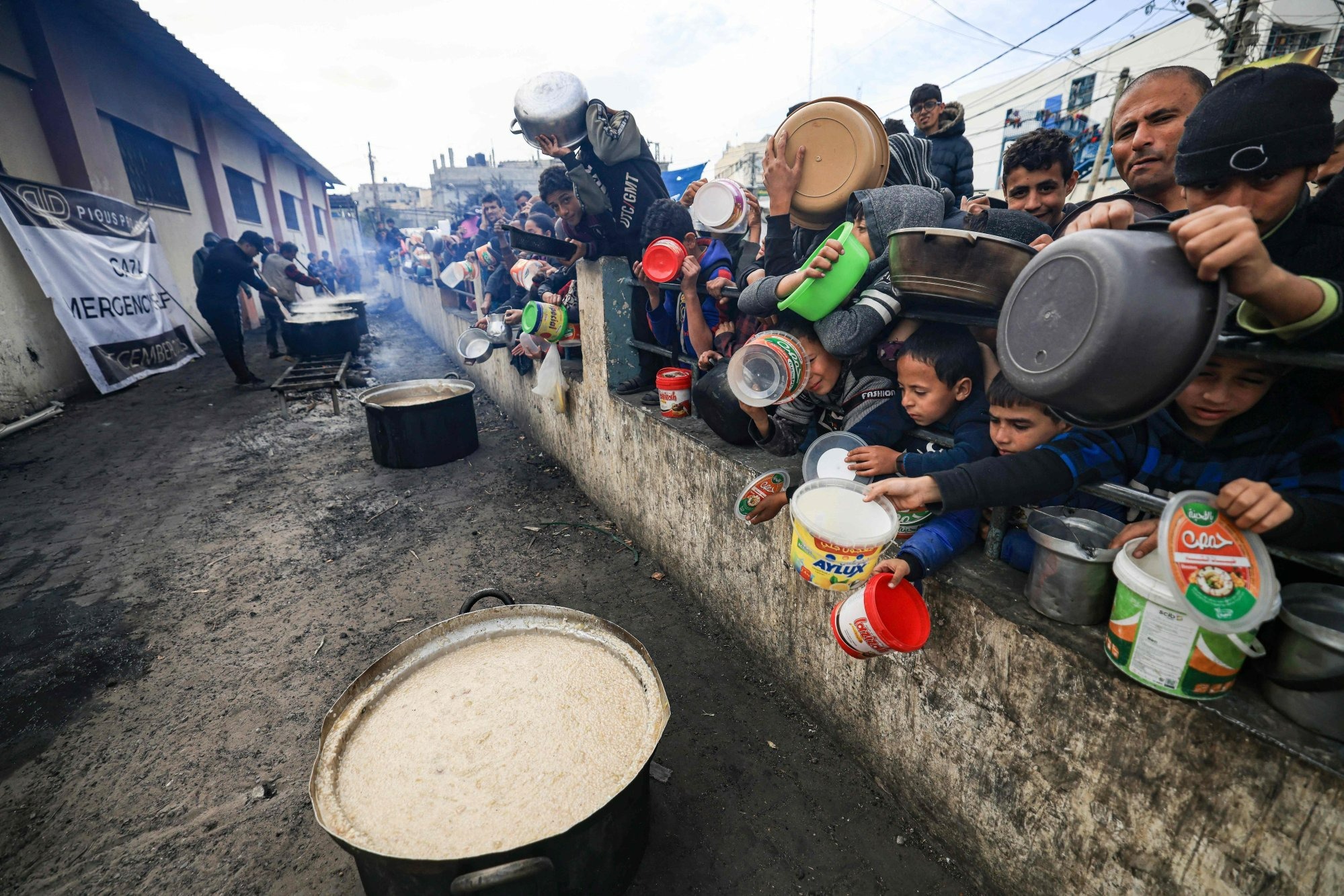Israel strikes Gaza after UN calls for more aid
AFP | Gaza
The Daily Tribune – www.newsofbahrain.com
Israel pressed its Gaza offensive yesterday, with Hamas reporting heavy shelling in several cities hours after world powers demanded more aid be allowed into the besieged Palestinian territory. Clouds of grey and black smoke rose over the southern Gaza city of Khan Yunis after strikes in the morning. The Hamas-controlled health ministry reported 18 people killed in a strike on a house in Nuseirat refugee camp in central Gaza, and said other targets were hit up and down the coastal Gaza Strip.
The bombardments came after the UN Security Council approved a resolution demanding “immediate, safe and unhindered” deliveries of life-saving aid be rushed to Gaza “at scale”. Members had wrangled for days over the wording. At Washington’s insistence, they toned down some provisions and avoided calling for a ceasefire that would stop the war, which began with unprecedented attacks 11 weeks ago by Hamas militants on civilians in southern Israel.
It is still unclear what, if any, impact the vote will have on the ground, where Gazans have been forced into crowded shelters or tents, and are struggling to find food, fuel, water and medical care. UN Secretary-General Antonio Guterres said a “humanitarian ceasefire” is the only way for aid “to be effectively delivered”. The issue was not the number of aid trucks, he said, but “the way Israel is conducting this offensive is creating massive obstacles” to aid distribution.
Famine looms
Immediately after the UN vote, Israel again vowed to fight on until Hamas is “eliminated” and hostages are freed.
“Israel will continue the war in Gaza,” said Foreign Minister Eli Cohen, insisting the war was legal and just. Fighting began on October 7 when Hamas gunmen broke through Gaza’s border and killed about 1,140 people in Israel, mostly civilians, according to an AFP tally based on Israeli figures. Palestinian militants also abducted about 250 people, 129 of whom Israel says remain in Gaza.
Vowing to destroy Hamas, Israel launched a relentless bombardment and ground invasion of Gaza, where 20,057 people have been killed, mostly women and children, according to the Hamas government which has ruled Gaza since 2007. Allies, including the United States which provides Israel with billions of dollars in military aid, have increasingly pressured Israel to avoid civilian casualties.
Israel insists Hamas is to blame for mass civilian deaths, accusing the Islamists of using innocent Palestinians as “human shields” and operating out of hospitals, schools and UN facilities.
A report by Washington’s Director of National Intelligence, quoted this month by US media, said nearly half of munitions dropped by Israeli aircraft on Gaza were “dumb” bombs -- less accurate unguided munitions. Israeli air force officers have disputed this. Photos approved for release by Israel’s army show soldiers operating in a wasteland of rubble where fires burn. The UN estimates the fighting has displaced 1.9 million of Gaza’s 2.4 million population. World Health Organization chief Tedros Adhanom Ghebreyesus said a majority of those uprooted from their homes were now going “entire days and nights without eating”, and “famine is looming”.
Displaced again
A one-week truce that Qatar helped mediate, with support from Egypt and the US, ended on December 1.
It saw 80 Israeli hostages released from Gaza captivity in exchange for 240 Palestinian prisoners. Israel has repeatedly told Palestinians to make their way to areas in the narrow Gaza Strip it says are safe, but even when they do, residents say they have still been bombarded. Many Gazans have been forced to move multiple times. Among them is Nur Wahidi, a doctor originally from Gaza City in the north, now displaced again and working in Rafah, in Gaza’s far south. “Diseases are terrifyingly widespread, and there’s a significant shortage of food,” she said, a stethoscope draped over her lilac sweater.
On Friday thousands fled central Gaza after an army evacuation order. It warned residents of Bureij, a refugee camp established about 70 years ago, to move “for their own security” towards Deir al-Balah city further south. Donkey carts creaked with their belongings as they passed through the streets. Families pushed babies in prams and led elderly relatives through the crowd, packing winter blankets for the road ahead.
Related Posts


